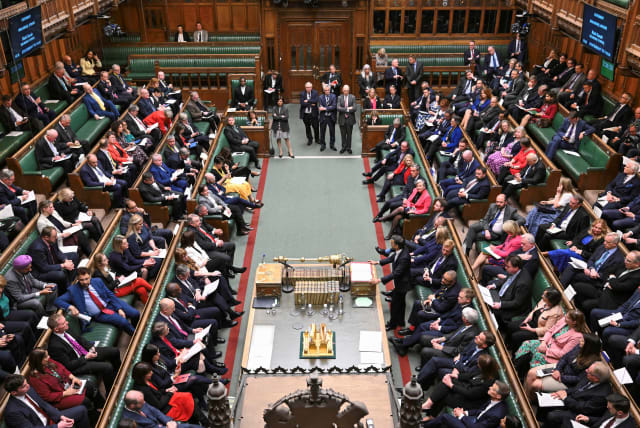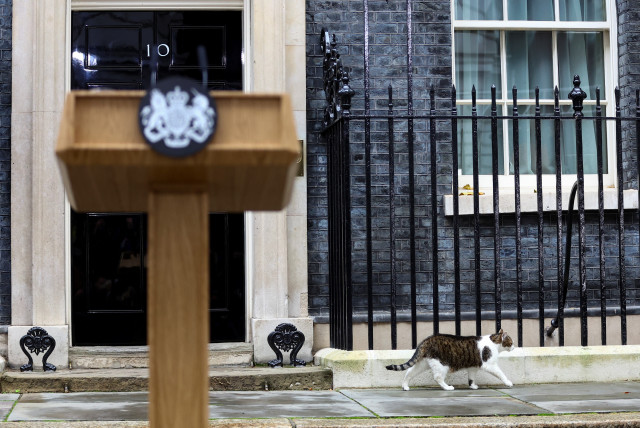Politicians' facial expressions can influence voters positively, negatively, study shows

Previous work by various researchers has shown that observers judge leadership traits and behavior – or a lack of them – from non-verbal cues such as facial expressions.
Beware of a politician’s smile especially before elections; there are at least two types – genuine and phony, according to a study carried out in the UK and US – and they can affect voter behavior.
The study, just published in the journal PLOS ONE under the title “Winners and losers: Emotional shifts across elections are conveyed by a politician’s smile,” was led by Dr. Carl Senior from the University of Warwick who was assisted by Prof. Patrick Stewart from the University of Arkansas and Prof. Erik Bucy from Texas Tech University. The team suggested the possibility that a winner’s affiliative smile would engender positive affect across all partisan groups compared to the winner’s reward smile display.
Previous work by various researchers has shown that observers judge leadership traits and behavior – or a lack of them – from non-verbal cues such as facial expressions. However, there has, until now, been little research outside the US on the effect of facial displays on voter behavior.
Facial displays are a rich source of perceived leadership traits, Various expressive cues are relied on to detect leaders and appropriate leader behavior; in fact, observers can quite rapidly process trait-related information from facial displays and make accurate inferences about competence and other important dimensions of leadership. This ability, they wrote, doesn’t demand advanced learning and is observed in children who can accurately recognize successful political leaders by comparing pairs of photographs, even when they have no prior knowledge of the leaders’ political background.
They two types of smiles that they studied were called affiliative and reward, and the context was smiles on the faces of political leaders during the last UK general election in 2019. The study is the first to look at how supporters of election losers react to the eventual winner.
The winner of the election was Boris Johnson, who was judged to display the affiliative smile that acts to align voter behavior. It didn’t help him much later, as Johnson, who was formerly the mayor of London, was involved in numerous scandals, including several parties he held at 10 Downing Street during the high point of the COVID-19 pandemic. Historians and biographers view his as the most disreputable premiership in modern times. He was kicked out of office after being prime minister only from 2019 to 2022.
The new research has found that the type of smile used by a political leader can influence voters to support them and their political agenda. The team used videos from political leaders from the 2019 UK general election, which was won by the Johnson’s Conservative party at the expense of the Labor party, which was then headed by Jeremy Corbyn. Jo Swinson who headed the Liberal Democrat Party came in third.
Differentiating between the 'reward' and 'affiliative' smile
The “reward” smile, said the team, “is the genuine, or felt smile, linked with joy and enthusiasm and most likely to be contagious with onlookers. It was also connected to higher levels of trust. The ‘affiliative” smile, meanwhile, communicates approachability, acknowledgement, and appeasement. It is associated with an affinity towards the onlooker and is thought to be important for developing cooperative relationships.
The researchers selected volunteers who claimed to be supporters of each of the three main parties and showed them the same video footage of the three leaders – Johnson, Corbyn and Swinson – before and after the 2019 election. The team assessed the emotional response to the different smiles for the candidates, whether positive (happiness and affinity) or negative (anger and distress).
When shown footage of election winner Johnson’s affiliative smile after the election, people in all groups showed an increase in happiness and affinity compared to when they were shown the footage before the election. Supporters of the losing parties showed an overall decrease in the negative effect. It was only this affiliative smile that was found to act as a mechanism to align voter feelings and behavior to the winning political message.
The reward smile did not have the same effect. Supporters of Labor showed an increased level of anger and distress when viewing Johnson’s reward smile after the election compared to before it.
The effects for Corbyn and Swinson were less influential, showing that they failed to significantly change voters’ responses to them. Their appeal was somewhat fixed and failed to match Johnson’s charm. Johnson took advantage of the voters’ feeling of annoyance about the slow Brexit process with his ‘Get Brexit done’ slogan, while Corbyn’s position was ambiguous. Swinson’s party was pro-Europe but lacked Johnson’s performative abilities to link a strong message to his nonverbal communication.
“The human smile can convey both rewarding and affiliative social intent and thus has significant utility in politics, where the ability to bond with and reassure voters is vital to electoral success,” said Senior. “We are in an unprecedented year as there are numerous elections scheduled to take place across several continents. The outcome of these campaigns will have a significant impact on millions of people across vast geopolitical regions. Given that almost all politicians involved in these election campaigns will make full use of broadcast media to reach voters, it is crucial to understand the effectiveness of their non-verbal displays in shifting voting preference.”
“The individual appeal of party leaders has become increasingly influential. A smile can’t win an election on its own. But Johnson’s personal appeal transcended party policies, connecting with people who hadn’t planned to vote for him,” Lee added. “The upside for today’s politicians is that charisma is not an innate quality. It can be taught. By paying attention to their facial behavior and ensuring they display the right smile in the right context, they can still leverage the power of emotional responses. It is something leaders of all organizations can learn.”
Jerusalem Post Store
`; document.getElementById("linkPremium").innerHTML = cont; var divWithLink = document.getElementById("premium-link"); if (divWithLink !== null && divWithLink !== 'undefined') { divWithLink.style.border = "solid 1px #cb0f3e"; divWithLink.style.textAlign = "center"; divWithLink.style.marginBottom = "15px"; divWithLink.style.marginTop = "15px"; divWithLink.style.width = "100%"; divWithLink.style.backgroundColor = "#122952"; divWithLink.style.color = "#ffffff"; divWithLink.style.lineHeight = "1.5"; } } (function (v, i) { });

